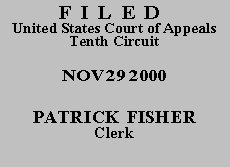

| UNITED STATES OF AMERICA,
Plaintiff-Appellee, v. LARRY CALVIN, Defendant-Appellant. |
|
In 1991, defendant was sentenced to forty-seven months' imprisonment and five years' supervised release following his conviction for possession with intent to distribute cocaine, 21 U.S.C. § 841(a)(1). During his term of supervised release, he was arrested for selling crack cocaine to an informanta violation of the conditions of his release and a ground for mandatory revocation thereof. 18 U.S.C. § 3583(d), (g); U.S.S.G. §§ 7B1.1(a)(1), 7B1.3(a)(1). While state charges were pending, defendant was brought before the district court for a hearing on the violation. On the basis of evidence presented at the hearing, the district court revoked supervised release and imposed a fifteen-month sentence. Defendant appealed, and we now affirm.
Defendant's counsel, the Federal Public Defender, has submitted an Anders brief and a motion to withdraw from representation. See Anders v. California, 386 U.S. 738, 744 (1967). Counsel's brief acknowledges that the revocation of supervised release on the basis of drug trafficking was supported by the evidence and that the sentence imposed was reasonable. Defendant has not filed a response to the brief and motion submitted by counsel. See generally 10th Cir. R. 46.4(B). After thorough review of the record and counsel's brief, we conclude there are no meritorious issues for appeal.
At the hearing, the informant recounted a controlled drug purchase from defendant, conducted under close police surveillance. Her version of events was corroborated by physical evidence and the testimony of the supervising officer. Defendant appeared at the parking lot designated for the buy, at which time the informant left the supervising officer's vehicle and approached defendant's car. The informant later explained that defendant had stored his crack cocaine under the hood of his car, and an officer did in fact observe defendant opening the hood and apparently retrieving something from the engine compartment in the middle of the transaction. A strip search before the buy confirmed the informant was not carrying drugs, while afterwards she produced a substance that tested positive for cocaine base. Defendant himself was identified by the informant and by officers sent to stop his car after the transaction. Such evidence constituted a sufficient basis on which to find, by a preponderance, that defendant had engaged in the charged conduct, as required by § 3583(e). See United States v. Hall, 984 F.2d 387, 390 (10th Cir. 1993).
Further, sentencing for this violation was properly guided by U.S.S.G. § 7B1.4(a), which sets out an "advisory rather than mandatory" range of 15 - 21 months.(1) See generally United States v. Hurst, 78 F.3d 482, 483 (10th Cir. 1996). Because Chapter Seven of the Guidelines Manual consists of policy statements rather than binding guidelines, "the fact that [defendant] received a term of imprisonment within the sentencing range recommended by [§ 7B1.4] does not preclude appellate review. Instead, since no guideline is applicable, we review the District Court's sentence to see if it is 'plainly unreasonable' [under 18 U.S.C. § 3742(a)(4)]." United States v. Sweeney, 90 F.3d 55, 57 (2d Cir. 1996) (citation omitted); see United States v. Lee, 957 F.2d 770, 774 (10th Cir. 1992). Defendant's conduct reflected a continuation in the same illegal activity that had led to his original federal conviction, and the seriousness of that activity is reflected throughout the Guidelines. The sentence imposed, which falls at the very bottom of the advisory range, was clearly not unreasonable.
The judgment of the United States District Court for the District of Colorado is AFFIRMED, and counsel's motion to withdraw is GRANTED.
Entered for the Court
Circuit Judge
*. This order and judgment is not binding precedent, except under the doctrines of law of the case, res judicata, and collateral estoppel. The court generally disfavors the citation of orders and judgments; nevertheless, an order and judgment may be cited under the terms and conditions of 10th Cir. R. 36.3.
1. Defendant's criminal history category (II) is the same as that "determined at the time the defendant originally was sentenced to the term of supervision," § 7B1.4, cmt. n.1, and his supervised release violation is designated "Grade A" under § 7B1.1(a)(1).